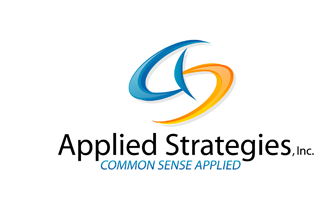Recession Proofing – An Update
In late February 2018, I released a column titled "Recession Proofing – Why Now? Perhaps the Better Response is Why Not?" It seemed to have struck a nerve with the legal industry. So much so, I thought it worth an update given the possibility of a recession in 2022 / 2023 and the best strategy for law firms to embrace to survive and prosper in a downturn.
While not an economist, a recent presentation by the Bank of Montreal reinforced the possibility that we are again on the precipice of a recession (Copy of my notes below).
As with most successful strategies, the strategy I propose law firms embrace to prosper before, during, and after any recession is simple but will be challenging to execute.
This strategy will work regardless of the size of your firm! The strategy may even be easier to execute for smaller firms.
It would be best if you became a low-cost producer. To be clear, I am not proposing you reduce/discount the fixed fees or hourly rates you currently charge. While there is a real possibility in the face of recession, clients will seek fee reductions; many will be satisfied with no fee increases.
In either case, the only way to maintain and grow your firm's prosperity during this time is to be able to manage your client costs.
To be clear, I am not proposing the typical cost-cutting exercise firms tend to embrace whenever there is fee pressure. Instead, I am recommending that firms focus on the following three operational aspects of "client costs":
- Project Management;
- Legal Technology; and
- Changing from a Fixed to an Open Mindset.
Project Management
It is critical to understand the concept and have the technology that makes it easy to execute and builds a history simultaneously.
... legal-project management applies to the mechanics and business of providing legal services ... |
Legal project management is the application of the concepts of project management to the control and management of legal cases or matters.1
It is essential to understand that legal-project management applies to the mechanics and business of providing legal services rather than the substantive legal work itself.
Regardless of the size, cases increasingly require scope, schedule, risk, and cost management in a more rigorous and measured manner than firms have practiced in the past. The ability to become effective in this aspect of "client costs" is like artificial intelligence. It will only grow with usage.
Firms practicing effective project management should be able to answer the following questions before embarking on a matter:
- WHY are we handling this matter for this client? Why is it essential to the client? What is the business goal of the legal work?
- WHAT work will accomplish the goal, and what work will specifically not be done? For example, is this a litigation matter or a mediation session with settlement on parallel tracks, or will we take a scorched earth posture? Is this an asset or a stock deal?
- WHEN must work be done and in what sequence? What are the rigid deadlines, and what timing is uncertain or dependent on unknowns? What are the milestones and key dates in our timeline?
- HOW do we manage the work based on constraints and requirements such as budget, strategic importance, client mandates, or risk management protocols? What does our work plan look like?
- WHO is involved in the work, and what are their roles and responsibilities? Who is responsible for the actual work, supports that person, and must be consulted or informed about status and decisions?2
Key project management responsibilities include:
- Plan projects
- Monitor project progress compared to the project plan
- Manage project progress
- Report project progress to all key stakeholders
- Confirm project completion
- Review of project outcomes
I would recommend you not try it on your own. It should be possible to retain a local project management expert to conduct an internal session on project management (work to generate CLE credits from such a third-party session) for senior staff, Associates, and Partners.
Once you are comfortable with the concept and can execute it effectively, ensure your clients know you utilize such an approach in handling their matters. Possessing the knowledge that their law firm is using this approach can serve as a fee reduction deterrent.
Legal Technology
Effective legal technology will result in the ability to control "client costs" from two perspectives – the time required to complete a task and, secondly, allowing firms to re-jig their professional complement (move from expensive lawyers to less costly para-professionals) needed to conduct the files.
There are several steps I would suggest firms consider doing to make sure they are using legal technology as effective as possible, including:
- Conduct an audit of all the existing legal technology used by the lawyers/practice groups in the firm to understand how and what it is used for (ideal opportunity to include younger lawyers). Also, it will help obtain a sense of what it is they don't have that would facilitate a more efficient practice;
- Visit the ABA tech center in Chicago to gain exposure to the latest technology in actual use and determine if applicable and appropriate for the firm's practice. I would recommend also visiting legal
innovation incubators to see what is online to be available in the future (and see if there might be some opportunity to be a development site for future considerations);
- Ensure members involved in the audit review any potential integrated accounting solution and optional modules to see if existing systems can be combined or if existing stand-alone applications might be replaced if an integrated module works better;
- Retain a system integrator to develop and present the optimum system scenario (some stand-alone software may be the best solution, but it is essential to have an external perspective); and
- Set a timetable (could be 1 - 2 years given likely costs) to achieve and execute the integration. This process is not static, so you should review the plan and new developments annually.
... you should look hard at your mix of professionals. |
To achieve complete cost control from the technology review, you should look hard at your mix of professionals. Keeping the same personnel even with the new technology is slightly better than a break-even proposition.
Changing from a Fixed to an Open Mindset
The reason I suggested that any recession strategy is simple but will be a challenge to execute stems from the tendency of most lawyers to possess a Fixed Mindset.
A fixed mindset believes that one's success is based more on inherent intelligence than effort. For the most part, the Canadian legal system largely rests on guidance from previous case law, resulting in an ingrained belief that the effective use of precedents is the definition of success.
Fixed mindsets foster a fear of failure and reluctance to go outside of one's comfort zone.
Growth mindsets support the belief that personality traits are malleable, as opposed to a fixed mindset, which holds that personality traits don't change.
With a growth mindset taking risks and failing is simply part of the journey.
A Harvard Business Review article pointed out that:
"People with growth mindsets see outcomes not as evidence of who they are but as evidence of what they could improve upon in the future and
what challenges they could overcome."
To that end, I would get your lawyers to focus on the strategy as being one for any time and, if possible, re-enforce with them Dr. Robert Anthony's philosophy "Forget about all the reasons why something may not work. You only need to find one good reason why it will."
Notes From
Bank of Montreal Presentation
Market Update - Interest Rates: Onward & Upward
- Genuine concern later this year is when interest rates will begin to bite. Historically it takes 12 – 24 months before the impact of changes is felt. As a result, BMO predicts no GDP growth in the last quarter of 2022 and only .5% in the first quarter of 2023 (zero growth is usually equated with a recession).
- BMO's inflation prediction is 7.7% this month and over 8% next month, staying at that level for a while. Because the Bank of Canada's target inflation rate is 2%, BMO predicts BOC's current bank rate of 1.75% will rise to 3.25% by year's end and remain there in 2023. They expect that at the scheduled rate announcement on July 13th BOC will increase its rate by at least .25%.
- BMO's take on supply issues is not from lack of production facilities but rather the pent-up demand for goods coming out of the Covid period. The bank saw a serious savings surge (more so in the top 25% of income earners) during Covid and currently seeing a serious drop as people's purchasing of goods spikes.
- BMO forecasts a considerable drop in housing prices (a 20% drop has already occurred). Housing as a percentage of GDP in Canada is 10% (only 5% in the USA), so they are seeing a potential 20% - 25% drop in housing prices.
- The bank has an interesting take on wages. The excess of unfilled jobs has to decrease; a serious wage increase is a primary way this happens. The impact of wage increases is an essential aspect of reducing inflation.
- It was not all bad news! Oil prices have dropped $20 a barrel in the last couple of weeks. It is seen as one of the commodities that have a serious (and immediate) impact on inflation, so to the extent that this downward direction continues, inflation control could happen sooner.
- Impact on Law Firms – BMO, as well as most banks, are re-examining clients' credit facilities and discussing future needs and the financial results required to support credit facilities. The best offense is to make sure your "credit house" is in order and that you are well situated should the recession hit sooner and with a more significant impact (now would be a good time to look at recession-proofing your firms).
-
https://en.wikipedia.org/wiki/Legal_Project_Management
- LPM 101: First Principles of Legal Project Management - Aileen Leventon, JD, MBA, is President of QLex Consulting Inc., which focuses on improving the results and economics of legal services for both clients and their counsel.
Stephen Mabey is a CPA, CA and the Managing Director of Applied Strategies, Inc. Stephen's focus is on law firms in general and on small to medium size law firms in particular. He has written about and advised on, a wide range of issues including – leadership, business development, marketing, key performance indicators, strategic planning, mergers, practice acquisitions, competitive intelligence, finance, mergers, practice transitioning, compensation, organizational structures, succession and transition planning, partnership arrangements and firm retreats. In 2013, Stephen was inducted as a Fellow of the College of Law Practice Management in recognition of his sustained commitment to the highest standards of professionalism in law practice management. For more information, visit appliedstrategies.ca or connect with Stephen Mabey on LinkedIn. |

